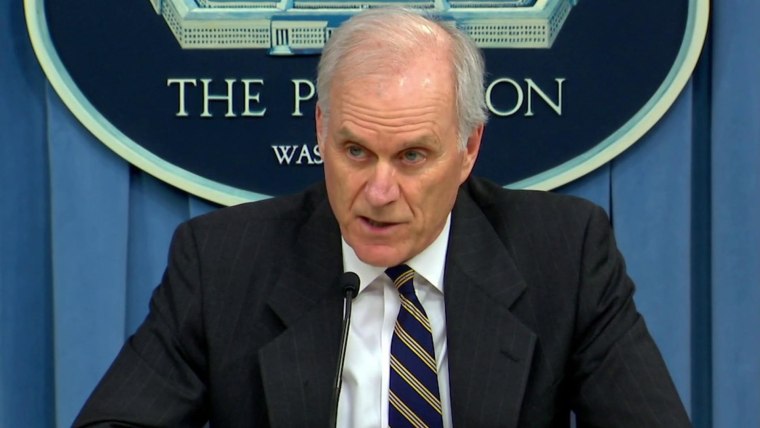Navy Secretary Richard Spencer prioritized military discipline, the rule of law, and the integrity of the Uniform Code of Military Justice system. Donald Trump did not. It led the latter to fire the former -- and offer some unfortunate presidential references to the "deep state."
But unlike so many of those who've been forced from their posts as a result of a Trump tantrum, Spencer isn't exiting the stage quietly. The former Navy secretary took some not-so-subtle jabs at the president in his departure letter -- explaining, for example, that the rule of law "is what sets us apart from our adversaries" -- which Spencer followed with an op-ed in the Washington Post, first published the day before Thanksgiving.
Spencer noted the president's interest in the case of Chief Petty Officer Edward Gallagher, a Navy SEAL and accused war criminal, whom Trump took an unusual interest in as a result of conservative media, which turned Gallagher into a cause celebre. After explaining in his op-ed the process of the White House's intervention, Spencer noted that the president "has very little understanding of what it means to be in the military, to fight ethically or to be governed by a uniform set of rules and practices."
His op-ed concluded:
Our allies need to know that we remain a force for good, and to please bear with us as we move through this moment in time.
It was a rather brutal line, effectively signaling to the world that Trump's time will pass, and the United States will eventually reclaim its status as a responsible global superpower.
What's more, Spencer isn't the only one speaking out in stark terms about the president's reckless antics.
The New York Times had a striking report over the holiday weekend, highlighting some of the details of the Gallagher case, and taking stock of the larger context.
The case of the president and a commando accused of war crimes offers a lesson in how Mr. Trump presides over the armed forces three years after taking office. While he boasts of supporting the military, he has come to distrust the generals and admirals who run it. Rather than accept information from his own government, he responds to television reports that grab his interest. Warned against crossing lines, he bulldozes past precedent and norms.As a result, the president finds himself more removed than ever from a disenchanted military command, adding the armed forces to the institutions under his authority that he has feuded with, along with the intelligence community, law enforcement agencies and diplomatic corps.
The Times spoke with Chris Shumake, a former sniper who served in Gallagher's platoon, who told the newspaper that he was troubled by the impact the president's intervention could have on the SEALs.
"It's blown up bigger than any of us could have ever expected, and turned into a national clown show that put a bad light on the teams," Shumake said. "He's trying to show he has the troops' backs, but he's saying he doesn't trust any of the troops or their leaders to make the right decisions."
And that, in a nutshell, is what the president seems incapable of understanding. Trump, who used a dubious injury to avoid military service during the Vietnam War, seems convinced that his willingness to ignore U.S. military leaders and shield accused war criminals from consequences makes him look better.
It's apparently never occurred to him to appreciate the distinction between superficial support for the military and genuine respect for those in uniform and the commitment behind their service. Asked if he supports the military, Trump is quick to point to symbols and gestures: he has military flags in the Oval Office, for example, and his interest in military parades is borderline creepy.
But there's still no depth of thought. The New York Times reported in November 2018 that top Defense Department officials "say that Mr. Trump has not fully grasped the role of the troops he commands, nor the responsibility that he has to lead them and protect them from politics."
A year later, the president's confusion has clearly not improved.
